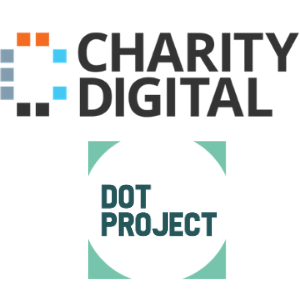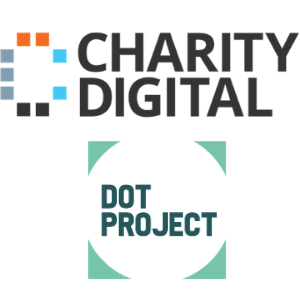Digital Strategy for Resilient Charities

What is the Digital Strategy for Resilient Charities programme?
The Digital Strategy for Resilient Charities programme has been designed specifically to give charities the confidence and capabilities they need to work through their own unique digital strategy. Each participant will be supported and given the tools to assuredly create a digital strategy that works for both their organisation and their service users.
Comprehensive and thorough modules cater to both the immediate and future needs of your charity and its beneficiaries, offering you the opportunity to learn how to create a digital strategy that works for you. The programme will help you to create the practices and cultures needed to maintain and sustain a strong digital foundation for now and for the future.
The COVID-19 crisis has caused many charities to radically change the way they work in a very short space of time. During the initial phase of the crisis there was a rapid move to online service delivery and remote working. Charities started using, or increased their use of, digital tools to support remote working, such as video call platforms and instant message tools. In the transition of face to face services to online service delivery, charities had to make rapid decisions about what digital platforms and technology tools to use. For some this has led to a fragmented technology landscape. Teams are using a variety of digital tools however the purpose of certain tools is not always clear.
In this context, the coming months are critical. As we emerge from the emergency phase of the crisis there is an opportunity to make sense of the new technology ecosystem you are managing, to understand which tools support your goals. Those charities who thrive in the aftermath of the response will be those who can both react to the immediate needs of their service users, whilst also planning for an unpredictable future. As we have seen over the past few months, digital needs to be an integral part of any charity’s strategy if they are to show resilience and growth for the long-term. No matter where you and your organisation are in your digital journey, setting out a strategy is invaluable to your future stability, impact and growth.
How much does the programme cost and how many places are there?
There are 30 places available on the programme, priced at £500. However, we are offering bursaries worth £500 for charities who are not in a position to pay for a place at this time. There will be at least 20 bursary places available.
If your organisation is able to pay for a position, we can guarantee up to 10 paid-for places. If more than 10 charities pay for a place, we will confirm the final shortlisted participants once the programme ends and contact you via email.
This initial programme and payment approach is a pilot. We hope to run this programme regularly and we are looking for participants to proactively feedback on the potential price and content of the course to inform future courses.
For more information on applying for a bursary, please see the ’application criteria’ tab.
Application deadline: 19th August 2020
Application criteria

All organisations applying for this programme should meet the following criteria:
-
Have the in-house capability to plan and/or manage services that are digital-enabled- either a formal digital team or individuals who have responsibilities for managing services which are enabled by digital
-
Have the capacity to participate in the programme (requirement of approximately 2 hours training plus 1-2 hours coursework a week, for 6 weeks)
-
Complete the attached application form and either pay the programme price of £500 or apply for a bursary
-
Be a registered charity
-
Have an income of between £1m - £10m per annum
-
Complete the bursary question on the application form and individually confirm commitment to the programme
How to apply for a bursary:
- If you organisation would like to apply for a bursary, you can do so on the ’apply now’ form. You will be prompted on the application form to state if you will be applying for a bursary or paid-for position.
- If you are applying for a bursary, you will be required to fill in some additional questions which our team will review. We will contact you via email if your application is successful or not.
- If you are applying for a paid-for position and your application is successful, we will email you an invoice.
We are particularly interested in receiving applications from:
-
Charities led by black, asian and minority ethnic groups
-
Charities led by individuals with lived-experience
-
Charities who provide support in the following sectors: mental health & wellbeing; support to low income households; survivors of domestic and sexual abuse; housing & homelessness; elderly care; support to people with disabilities; early childhood; migrants & refugees and minority ethnic groups
The programme will run from 2nd September to 14th October 2020 and follow the schedule outlined in the Programme Modules section. Between each module charities will be asked to complete specific activities to prepare for the next module.
Application deadline: 19th August 2020
Programme modules
The programme will run from 2nd September to 14th October 2020 and follow the schedule below. Homework will also be set after each module.
The programme will be delivered online via Zoom over 6 weeks with a preceding kick off call. Between each module charities will be asked to complete specific activities to prepare for the next module.
The following key areas will be covered and we will confirm a detailed structure on the kick off call on Wednesday 2nd September:
Kick off call: Wednesday, 2nd September: 10-11am
Session 1- Wednesday, 9th September: 10am-12 noon
Embedding your Digital Approach into your organisational strategy
- What is a Digital Strategy
- What are the characteristics of an effective digital strategy
- What might an ineffective Digital Strategy look like
- Assessing the scope of your Digital Strategy - considering digital platforms, back office systems and digital services - and how you decide
- Understanding the alignment between Organisational Vision and Objectives and Digital Strategy
- Introducing the steps to developing a Measurable and Clear Digital Strategy
- Follow up exercise: Reviewing your organisational strategy (if it exists) and identifying how your Digital and Organisational strategies aligns.
Session 2- Wednesday, 16th September: 10am-12 noon
Technology Landscape Audit – what have you got now, and what are the risks, issues, opportunities and constraints of your existing technology landscape
- Exploring what is important to know in relation to your technology landscape considering: organisational structure & business process; data (and security); suppliers & partners; applications; technology and the skills and resources in your team
- Follow up exercise: In the context of your organisation assess what you know about your technology landscape, and where you suspect there are gaps. Identify your biggest risks – and why, and explore areas of opportunity.
Session 3- Wednesday, 23rd September: 10am-12 noon
Governance and stakeholders
- Identifying the main stakeholders – who they are, their roles, and who is critical to the success of a Digital Strategy
- Exploring the role of Digital within your organisation - rather than just as a support service
- The importance of aligning communication styles
- Dealing with conflict (and where it becomes critical)
- Reviewing process(es) for aligning your digital strategy to your organisational strategy
- Follow up exercise: Identify your stakeholders and define an engagement plan. In the context of what you have in terms of digital strategy identify whether the right stakeholders are involved and what can be done to improve your approach.
Session 4- Wednesday, 30th September: 10am-12 noon
Planning for Delivery – the need to be measurable and the importance of a roadmap
- Introducing the importance of a roadmap, as an artifact
- Identifying how your digital strategy breaks down into discrete projects, actions or activities
- Defining responsibilities, priorities and feasibility
- Follow up exercise:
- If you have a roadmap – how does your current work in progress map to the above. Where are the gaps and issues? What can you plan to do to close those gaps/address the issues.
- If you don’t have a roadmap – based on previous exercises, how does your outline strategy map to your organisation, stakeholders and resources. What are your plans for engagement and building a roadmap?
Session 5- Wednesday, 7th October: 10am-12 noon
Trends, Opportunities and Threats
- Technologies and Trends - (cloud, mobile, virtual, AI, ‘bigger data’)
- Opportunities – how to differentiate between opportunities and ‘distraction projects’
- Threats (Security, cost, data, compliance/legal, reputation)
- Follow up exercise: Identifying which of the above are relevant to your organisation and how you might prioritise/validate their value/impact. Assess whether there are any possible ‘distraction projects’ in your organisation and whether there are ways to make these valuable. Based on what you identify, create a plan to engage the appropriate stakeholders and make changes
Session 6- Wednesday, 14th October: 10am-12 noon
Hypothetical Case Studies – putting the above into practice
- Review of learnings
- Review Case Studies – putting all the above into practice
- How ’good’ are the strategies?
- Where are the issues?
- What should be the next steps?










